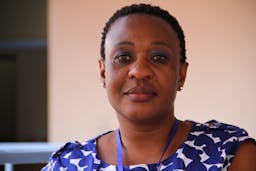September 13, 1890: The Pioneer Column CREATES Cecil Square. November 28, 2013: WOMEN paint Africa Unity Square Orange!
Jan 21, 2015
Story
At 10am on September 13, 1890 members of the Pioneer Column tied the Union Jack at the end of a Musasa pole. They hoisted it in the center of the park, offered a prayer and fired salutes from two field guns. That was the beginning of the Cecil Square, renamed Africa Unity Square after independence. This marked the beginning of many years of suffering under colonial rule for Zimbabweans, but mostly for women who had to bear the brunt of both colonialism and patriarchy.
Yesterday, November 28, 2013, women painted Africa Unity square orange and the banner of Musasa flew at the same place the Union Jack flew. Musasa is an organization working hard to eliminate violence against women in Zimbabwe since 1988. The organization provides counseling, legal advice and temporary shelter to survivors of gender based violence (GBV), coupled with advocacy initiatives aimed at ending all forms of violations of women’s rights.
Women and men from all walks of life, different class echelons, and different spiritual belief systems converged here after a march to commemorate 16 Days of Activism Against Gender-based Violence in Harare under the theme, “From peace in the home to peace in the community.” Amid pomp, the orange color of t-shirts and promises, speaker after speaker emphasized the need to fight gender-based violence.
The 2011 Zimbabwe Demographic Health Survey (DHS) names violence against women the main violation of human rights and biggest barrier to gender equality in the country. In the year 2009, when Zimbabwe was still reeling from the effects of a highly inflationary economy and a polarized political environment, GBV cost the country an estimated $2 billion. Other national studies also show that up to 70% of women have experienced physical and/or sexual violence in their lifetime from an intimate partner. The statistics are many and come from varied sources, but under-reporting of violence also remains a chronic reality in Zimbabwe. Access to the formal justice system for the ordinary woman is limited, while alternative dispute resolution mechanisms remain a mismatch for women’s needs. Only a coalescence of efforts similar the one exhibited yesterday, with a motive of nurturing a critical and formidable mass of women and men who speak with one voice against negative beliefs and attitudes will save women. Well done Musasa, and all those organisations that stood in support to create this useful space for women to collectively strategize for action and safety.
This action should surely not end with the 16 days, but should become everyday practice, given the daily rising altitudes of insecurities for women on every front. Patriarchy continues to forcefully surface its ugly head in every space and in ‘innovative’ ways too, for want of a better word. When women are set against each other, when they are motivated to cause each other pain and injury, and when rules are set such that women ‘take care’ of everything and everyone in the home, at the workplace and in every space, whilst ignoring their own bodily well-being and security needs, I call that patriarchy’s ‘innovativeness’, or ‘state-of-the-art’ manifestations. Likewise Zimbabwean women should continue to rethink innovative ways of creating safe spaces to collectively strategize for action and safety. A ‘business-as-usual’ approach will not give us the social transformation we desire to live. New inquiries need to be tabled, and feminist ways of social transformation to be considered too in order to create a new leadership through and with women, and of course with reasonable men. Prioritizing the well-being of individual women should take precedence, and this strategy will help nurture and catalyze stronger movements for real, sustained change.
In Zimbabwe these forms of strategies for social transformation are firmly taking roots. Just Associates (JASS) works with selected women’s organisations in this country to convene well-being circles of diverse women activists as safe spaces to think through issues of self-care for women who have been battered by violence and burn out, to do security and safety planning, and to build strategies of solidarity and collective mobilizing. The first Heart-Mind-Body was held in partnership with Musasa in 2010. Soon after elections, JASS convened a similar safety and security space for women activists in collaboration with Katswe sisterhood, where body politics was underscored, and taekwondo and yoga were introduced as practical strategies for safety, security and well-being. In reality, the work of promoting human rights and resisting repression can become increasingly dangerous, and the JASS’ Heart—Mind—Body (HMB) approach enables women to critically read and understand the risks they face. Onward JASS!




